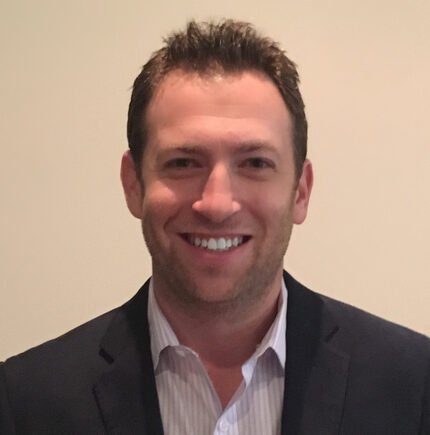I recently went one on one with two-time Emmy Award-winning filmmaker Jerri Sher. A member of the DGA since 1998, Jerri has completed 22 film and television projects, including her upcoming documentary Quiet Explosions: Healing the Brain.
Adam: Thanks again for taking the time to share your story and what you have learned from your journey to date. What experiences. failures, setbacks or challenges have been most instrumental to your development and success?
Jerri: The fact that I am constantly learning and evolving is what has made me a success. Having three distinct careers before it was fashionable for women to work gave me the strength and fortitude to endure and thrive in a man’s world. I was the youngest Professor at Springfield College in the 70’s. I was the first female in the trucking industry in the Northeast Corridor negotiating freight contracts for Fortune 500 companies in the 80’s; and I was a Jewish female from Massachusetts who never went to film school who directed movies and won two Emmys by 2017. There is no such thing as “no” in my vocabulary. I shoot for the stars and I move mountains. Thinking outside the box has always been my strong suit, perhaps that comes from my creative brain as I was oil painting by the time I was eight. I freeze every frame of the movie like a painting. And I did not realize the skills I was learning in the transportation industry, working with the teamsters, creating budgets, etc. was getting me ready to become a producer. Having worked in a totally male dominated industry in trucking gave me the fortitude to deal with Hollywood and the difficulty women have getting ahead in entertainment.
Adam: In your experience, what are the common qualities among those who have been able to enjoy success in the entertainment industry? What advice do you have for those either trying to break in or advance?
Jerri: The most important common qualities for one to have to enjoy success in our bizarre entertainment industry is perseverance and belief in oneself. The advice I would give someone trying to break in is, never give up, create your own projects and don’t take no for an answer. When I said I wanted to be a director I was told by three different men, “You cannot because 1. you are a female 2. you never went to film school and 3. you live in Massachusetts.” The more I was told I could not, the more I knew I would. I had belief in my own abilities and I stuck by my convictions that I could be as good as any man.
Adam: What are the best lessons you have learned through your career in entertainment that are applicable to those who will never earn a living in front of or behind the camera?
Jerri: Important lessons that I have learned are: take risks, don’t follow the safe road, take a chance, be bold, listen to your heart, and help others by being gracious. People in front of or behind the camera in our industry who flounder, procrastinate, never take chances and never help others will surely not thrive.
Adam: Who are some of the best leaders you have been around and what have you learned from them? What do you believe makes an effective leader?
Jerri: When I think of a leader, because there are so many types of leaders, I think of a captain of a ship or the director on a movie set, the head of a family, the President of a college or the CEO of a hospital. Effective leaders are honest and have the same rules for everyone, they don’t play favorites. Good leaders are able to juggle and do many tasks at once. Certainly on a movie set you are wearing many hats and you have to be a friend, a psychologist, an inspirer, a coach and many more roles. Leaders stay calm, they do not fly off the handle when things go wrong, because of course, things always go wrong. Leaders know how to motivate and encourage others, they have a kindness inside of them that never goes away. True leaders lead by example. In the movie business I was so impressed by Garry Marshall who is an example of a stellar leader. He tried to know everyone’s name on set and he got to know people on a genuine basis, to be like a friend. Of course, every industry is different, but being enthusiastic and genuine goes a long way when you want to be an effective leader.
Adam: What are your three best tips applicable to entrepreneurs, executives and civic leaders?
Jerri: Tips would be don’t let negativity into your brain, stay positive, think positively and you will be positive. Associate with people like yourself or better, it is always good to be around people who inspire you and encourage you, who bring out the best in you. And my main thing is, think outside the box, if there is a problem figure out a way to solve it. As a movie director we deal with hundreds of problems on any given day and it is my job to figure out a solution to each and every one of those problems. It does not matter how uncanny the solution is or what I did to resolve the problem as long as it goes away.
Adam: What is something you have witnessed up-close or experienced that would shock readers?
Jerri: My transition from the trucking world to the movie business is a bit of a shock, especially when you hear how it happened. I came up with an idea for a screenplay or a book about a woman in the trucking business. It was a combination of my first two careers. It is called THE TWIG PAINTER. I took my painting (twig painting that is) and my daily routine as a regional sales manager for GOD trucking (Guaranteed Overnight Delivery) and created a story about the cure for HIV AIDS. Working for GOD presented some levity. I would show up at Gillette’s corporate office and the receptionist would take my card and call the traffic manager, she said, “GOD’s here and it’s a woman.” Getting back to my writing, I made sure my theory was plausible with NIH and I had no idea how I came up with this theory. It is a medical mystery; fiction based on fact, it was my story. I told my brother-in-law who was a doctor about my theory and he thought I was crazy, after all I never went to medical school. A couple of years later he called me and was shouting in the phone as he read about my theory in a medical journal. I had already written the whole screenplay by this time. He told me to track down the writer of the article who was at the Chicago Tribune and call him. Of course I did, he put me in touch with a Researcher at the University of Chicago who indeed was working on my exact theory. I guess it is no coincidence that I just finished a big feature movie about the methods to heal Traumatic Brain Injury and PTS. Somehow, someway I have become the conduit to give these important stories to the world. Even though I am not a doctor or a healer, it is supposed to be me bringing this important information to the universe. You will have to read my novel THE TWIG PAINTER to find out the theory, which they are testing in Sarawak, Malaysia. There was a burning question inside of me asking how did I know how to write a screenplay and how could I find out more about making movies. It was then that I knew that I was destined for the creative entertainment business and 18 years ago my husband and I sold everything in Massachusetts and moved to Los Angeles. And as they say, the rest is history. Twenty two projects later and two Emmys, I am definitely where I am supposed to be and everything in my life up until now has been the stepping stones to get me here.
Adam: What do you hope those who view your documentary take away from it?
Jerri: Anyone watching QUIET EXPLOSIONS: Healing the Brain is sure to learn something about the brain and the body. I have many doctors who watched my film who have been practicing for 20+ years and they told me they learned so much from the movie. I want the public to realize there is hope and there are alternative methods to address TBI and PTS and you can heal. There are so many folks wanting to commit suicide because they cannot deal with the trauma and illness of brain injuries. I am hoping these individuals will seek help and learn about the new methods that are available so they can live wholesome lives and be a part of society again. Right now 20 veterans commit suicide every day – hopefully after this move is seen by the world, that number will come way down; then, I know I have done my job
Adam: What is the single best piece of advice you have ever received?
Jerri: The best piece of advice I have received and I try to live by is, don’t ponder about the past, and don’t worry about the future, be in the present and enjoy the moment. Actually be present.
Adam: What is one thing everyone should be doing to pay it forward?
Jerri: It is important to help others, to give back, I am always trying to mentor students and give them advice and listen to their questions. I guess because I was a former teacher, then a professor, I have a soft spot for students and I want to help them along in anyway that I can.
Adam: Is there is anything else would you like to share?
Jerri: My life is extraordinary mostly because I have a lot of love in my life, A devoted husband of 51 years, two extraordinary daughters and their husbands and 5 grandchildren who I love being with. They keep me laughing and they give me many more stories. As an author and an award-winning filmmaker, the President of GOD trucking calls me a Renaissance woman. I guess that pretty much sums it all up.









